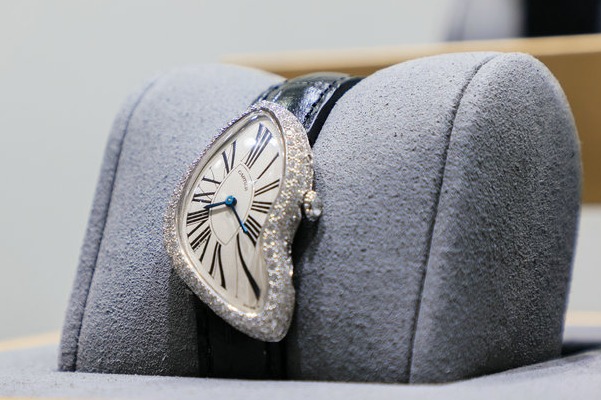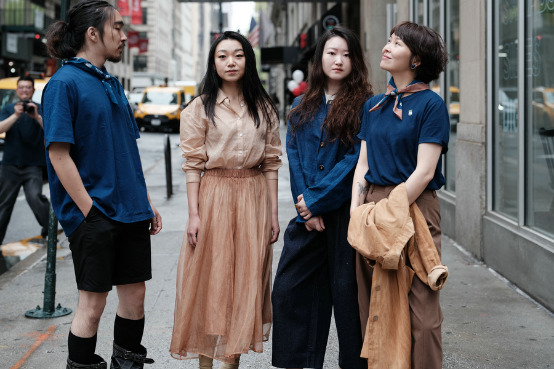Chinese doctors restore eyesight to Senegalese cataract patients

Thiekouta Diouf, an 84-year-old Senegalese cataract patient, was overjoyed to regain his sight after receiving a custom-made foldable intraocular lens implant from Chinese doctors.
The free surgery was performed last week inside a mobile surgical unit at the Regional Hospital Center of Fatick in western Senegal by Zhang Zhaode, an ophthalmologist from Fujian province.
"The operation was comfortable. I felt no pain," Diouf says.
His operation was the 3,603rd procedure completed under a cataract blindness prevention project launched by the GX Foundation, a Chinese nonprofit and nongovernmental organization registered in Hong Kong, and the Fujian Provincial Health Commission.
According to the World Report on Vision published in 2019 by the World Health Organization, more than 2.2 billion people suffer from visual impairment or blindness. For at least 1 billion, the condition was preventable or is treatable. A lack of eye care, especially in low — and middle-income countries, remains one of the leading causes.
In Senegal, where the healthcare system is underdeveloped and high ultraviolet exposure in the tropical Savannah contributes to cataract development, the situation is particularly pressing. Many patients miss the optimal window for treatment due to limited medical services.
Senegal's Minister of Health and Social Action Ibrahima Sy describes blindness and visual disorders as major public health issues, noting that nearly 165,000 Senegalese are blind, and more than 550,000 suffer from visual impairments caused by cataracts, trachoma, glaucoma and other conditions.
"The situation is more serious than we had imagined," says Zheng Hong, chief physician at the ophthalmology department of Sanming No 1 Hospital in Fujian. A month earlier, she and four colleagues traveled over 10,000 kilometers to reach the West African country.
"We initially planned to perform about 10 operations a day," Zheng adds. "But faced with so much demand, we all agreed to extend our working hours and now perform over 20 surgeries a day."
In the early hours of the Friday last week, hospital corridors were jampacked with patients from across the country. Local volunteers handled registrations and screenings.
"A friend from my village told me the Chinese doctors here are very skillful and are capable of fixing our vision problems," says 52-year-old Saliou Diouf, who had driven from a nearby rural area. He has lived with blurry vision for years, unable to access surgical treatment.
"We conduct thorough screenings for every patient," says Zhang Caihua, chief physician at the ophthalmology department of Sanming No 2 Hospital in Fujian. "Once cataracts are diagnosed, we customize intraocular lenses to suit each individual's eye condition."
In the screening room, Zhang Caihua and a team of Senegalese doctors used a keratometer and A/B-scan ophthalmologic ultrasound to collect data. "The patients are cooperative during screening and surgery," she says. "When the bandages come off, some patients dance, others cry. That joy transcends all language barriers."
At a closing ceremony held recently in Senegal's capital Dakar to mark the end of the Fatick leg of the project and renew the cooperation agreement, Leung Chun-ying, president of the GX Foundation, spoke about the project's progress.
Since its launch in October 2023, the project has dispatched seven specialized ophthalmology teams, which have screened more than 5,800 patients aged between 17 and 103, and conducted over 3,600 free cataract surgeries.
"For more than a year, we have shared Chinese medical expertise with the people of Senegal. In return, they have left us with touching stories. Whether it's patients who have been blind for 30 years or centenarians, the joy of regaining sight deeply symbolizes Sino-Senegalese friendship," Leung says.
?



































